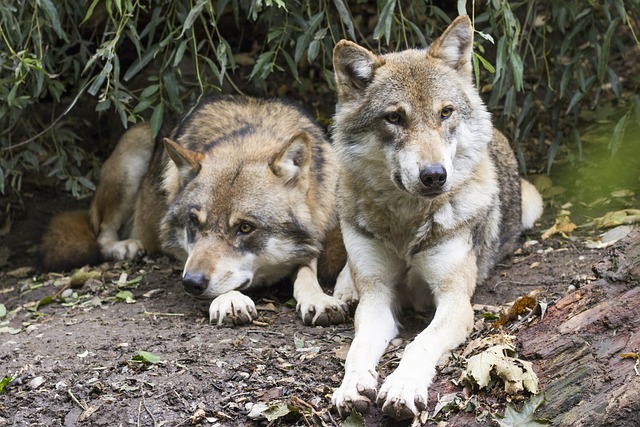When I first encountered a pitbull, it was at my neighbor’s backyard barbecue. The dog’s name was Bella, and she had this infectious energy that made you want to play with her.
Despite hearing all the stereotypes about this breed, meeting Bella made me wonder: Are pit bulls genuinely good family dogs or have they been misunderstood?
Expert Opinions
It’s essential to consider expert opinions in the debate, as they often bring years of experience and research to the table. Many veterinarians note that breed isn’t a reliable predictor of behavior.
Instead, individual upbringing, training, and genetics play a more significant role.
They emphasize that responsible ownership is the key, regardless of breed. Furthermore, many vets testify that they’ve treated countless Pitbulls displaying gentle, friendly natures.
Animal Behaviorists’ Views
Behaviorists often stress the importance of early socialization and training. They argue that labeling an entire breed as “dangerous” oversimplifies a complex issue.
Most behaviorists advocate for evaluating dogs on a case-by-case basis rather than making broad generalizations based on breed.
Should You Make This Dog A Part of Your Family?

To answer this question, it’s essential to break it down based on various criteria:
Consider Their Temperament and Behavior
At their best, many Pitbulls are friendly, affectionate, and even known to be excellent with children. They often score well in temperament tests.
For example, the American Temperament Test Society has found that American Pit Bull Terriers, one of the breeds often labeled as “Pitbulls,” have an 86.8% temperament passing rate, which is comparable, if not better, than many other popular breeds.
Are You Looking For Loyalty and Protection?
Due to their history and breeding, these dogs are known to be very loyal to their families. They can be protective, which, when combined with proper training and socialization, can be channeled into a positive trait.
Fulfilling Their Physical Needs
These dogs are active and require regular exercise. A sedentary lifestyle or prolonged confinement can lead to boredom and destructive behaviors. Families that are active or those who can provide ample playtime and walks would find them to be a good fit.
Space Considerations
While they’re medium-sized dogs, they’re also quite muscular and energetic. They don’t necessarily need a large yard, but space to move around would be beneficial.
Debunking Common Myths

Pitbulls are often subjected to myths that paint them in an unfavorable light. It’s important to distinguish between fact and fiction when discussing their suitability as family dogs.
They Have Locking Jaws
One widespread myth is that Pitbulls have a unique jaw structure that allows them to “lock” their jaws when they bite. This myth has contributed to the belief that they’re more dangerous than other breeds.
In reality, there is no scientific evidence to support this claim.
Their jaw structure is no different from any other breed. While they do have strong jaw muscles, the idea that they can lock their jaws is purely a myth.
They’re More Aggressive Than Other Breeds
Another common misconception is that these dogs are inherently aggressive. However, according to the American Temperament Test Society, they regularly score above average for temperament compared to other breeds.
What’s crucial to understand is that aggression in dogs, regardless of breed, often stems from factors like improper training, lack of socialization, abuse, or specific breeding practices aimed at promoting aggressive traits.
When raised in a loving environment and properly trained, Pitbulls can be as gentle and well-behaved as any other dog.
The Importance of Training and Socialization

While Pitbulls can be amazing family dogs, their upbringing plays a significant role in shaping their behavior.
The Role of Training
All dogs benefit from consistent training, and Pitbulls are no exception. Basic obedience training helps establish a strong bond between the dog and its owner and ensures the dog understands what’s expected of them.
Additionally, since these dogs are strong and energetic, it’s essential to teach them manners from a young age. Consistent, positive reinforcement-based training methods are recommended.
Negative or punishment-based techniques can exacerbate behavioral issues.
Importance of Early Socialization
Socializing a Pitbull from a young age is vital. Exposing them to various people, animals, and environments ensures they grow up to be well-adjusted adults. Socialized Pitbulls are less likely to show fear or aggression towards unfamiliar situations.
Furthermore, socialization reduces the likelihood of unwanted behaviors such as unnecessary barking, territoriality, or aggression.
A well-socialized Pitbull is a joy to be around and can interact harmoniously with children, strangers, and other pets.
Media’s Influence on the Breed’s Reputation
Negative incidents involving these dogs often gain more media traction than similar incidents with other breeds. Such events, though isolated, have cemented a certain image of the breed in public consciousness.
It’s essential to realize that for every negative story, there are countless positive stories of Pitbulls that never make the headlines.
Moreover, while any dog attack is tragic, it’s critical to contextualize and compare the frequency of such events relative to the breed’s overall population.
An incident’s newsworthiness doesn’t necessarily correlate to its representativeness of the breed as a whole.
Heroic Pitbulls in the News
There are numerous stories of Pitbulls showing extreme bravery and loyalty. From saving family members from fires to protecting children from potential threats, these tales showcase the breed’s protective and loving nature.
By highlighting and celebrating such stories, we can work towards a more balanced perception of these dogs.
Breed-Specific Legislation (BSL) and its Implications

One of the contentious debates around Pitbulls involves Breed-Specific Legislation. Understanding the implications of BSL helps frame the broader conversation about the breed.
What is Breed-Specific Legislation?
BSL refers to laws that ban or restrict the ownership of specific breeds, most notably the Pitbull. Proponents argue that such laws are necessary to reduce dog attacks, while opponents claim they are ineffective and unfairly target specific breeds.
The primary criticism of BSL is its focus on breeds rather than the behavior of individual dogs.
Many animal welfare organizations, including the ASPCA, oppose BSL, advocating for breed-neutral laws that focus on responsible pet ownership and individual dog behavior.
Impact on Families and Pitbulls
Families in areas with BSL face tough choices: relocating, giving up their beloved pet, or living in secrecy. For the dogs, BSL often means overcrowded shelters, fewer adoption opportunities, and, sadly, increased euthanasia rates.
Rather than promoting safety, BSL can create a myriad of new problems, both for families and the dogs themselves.
FAQs:
Do Pitbulls have a stronger bite than other breeds?
While they have strong jaws, the myth that they have a “lockjaw” or exert more pressure per square inch than other breeds is unsubstantiated. Many factors, including the individual dog’s size and health, can influence bite strength.
It’s always crucial to promote positive behaviors in any dog, regardless of their breed.
What’s their average lifespan?
On average, a healthy Pitbull can live between 12 to 14 years, with proper care, a balanced diet, and regular check-ups.
Are there any health issues specific to this breed
Pitbulls, like all breeds, have certain predispositions. They can be prone to hip dysplasia, hereditary cataracts, and allergies. Regular vet visits and being aware of these potential issues can help ensure a long, healthy life for your pup.
What activities do Pitbulls particularly enjoy?
These dogs are active and playful. They often enjoy activities like fetch, tug-of-war, agility courses, and even simple walks or hikes. Regular play and exercise can also help channel their energy positively.
Are they easy to train compared to other breeds?
Pitbulls are known to be intelligent and eager to please, making them generally responsive to training. However, like all dogs, early, consistent, and positive reinforcement training methods work best.
Their eagerness to please their owners often makes them one of the more trainable breeds.
The Bottom Line
After diving deep into the world of pit bulls, it’s clear that these dogs, like any other breed, largely reflect the environment they’re raised in.
Bella, with her wagging tail and love for belly rubs, reminded me that every dog deserves to be judged by its character, not its breed.
If you’re considering adding a furry member to your family, maybe, just maybe, a Pitbull could be the heartwarming companion you’ve been looking for.






